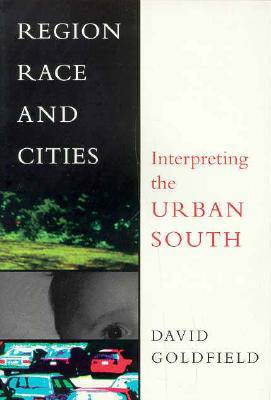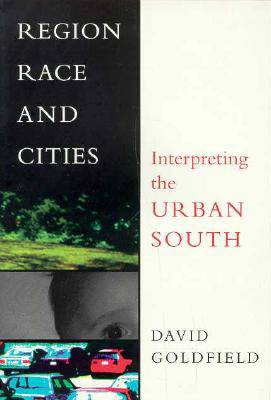
En raison d'une grêve chez bpost, votre commande pourrait être retardée. Vous avez besoin d’un livre rapidement ? Nos magasins vous accueillent à bras ouverts !
- Retrait gratuit dans votre magasin Club
- 7.000.000 titres dans notre catalogue
- Payer en toute sécurité
- Toujours un magasin près de chez vous
En raison de la grêve chez bpost, votre commande pourrait être retardée. Vous avez besoin d’un livre rapidement ? Nos magasins vous accueillent à bras ouverts !
- Retrait gratuit dans votre magasin Club
- 7.000.0000 titres dans notre catalogue
- Payer en toute sécurité
- Toujours un magasin près de chez vous
55,45 €
+ 110 points
Description
For more than twenty-five years David Goldfield has interpreted southern urban history for audiences ranging from museumgoers to academics. His love affair with the discipline dates from its birth in the late sixties, and he has been among its primary nurturers ever since. Goldfield's approach is as unconventional as the South itself, relying heavily on works in other fields, and southern novels especially, to explain the region's diversity and distinctiveness. A solicitous citizen as well as theoretician, Goldfield strives to apply his knowledge and perspective to improving today's urban communities.
Region, Race, and Cities presents eleven of his best essays--three unseen till now--in one volume, providing an overview of the evolution of southern urban history into a vibrant and legitimate branch of southern history. Goldfield's grasp is extensive. He discusses the economic importance of the South's antebellum towns, the impact of World War II on southern cities, voting rights and black political power, issues of urban policy and quality of life, the survival of southern identity, and much more. Two principles formulated early in his career continue to guide his thinking: first, the importance of southern cities and their similarity to other urban locales in the country, possibly throughout the world; and second, the intimate interactions between the South's cities and the region as a whole. Goldfield's catching enthusiasm for southern urban history, for the South, pervades this important work of scholarship. In the face of tremendous change, despite skyscrapers, subdivisions, and shopping malls, both city and region, Goldfield declares, have a resilience that defies homogenization and superficial analysis.Spécifications
Parties prenantes
- Auteur(s) :
- Editeur:
Contenu
- Nombre de pages :
- 310
- Langue:
- Anglais
Caractéristiques
- EAN:
- 9780807122440
- Date de parution :
- 01-10-97
- Format:
- Livre broché
- Format numérique:
- Trade paperback (VS)
- Dimensions :
- 152 mm x 227 mm
- Poids :
- 498 g

Les avis
Nous publions uniquement les avis qui respectent les conditions requises. Consultez nos conditions pour les avis.






